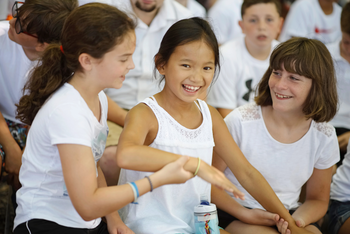
From [the prophets] I learned the niggardliness of our moral comprehension, the incapacity to sense the depth of misery caused by our own failures… The more deeply immersed I became in the thinking of the prophets, the more powerfully it became clear to me … that in regard to cruelties committed in the name of a free society, some are guilty, while all are responsible. -Abraham Joshua Heschel, 1973
We returned from the inspiring tour of the Galilee Jewish-Arab youth circus in the US to lurid headlines about a “lynch” in central Jerusalem, when a group of Jewish teenagers went from trading insults with Arab teens who happened to pass by, to beating them up, so badly that one was hospitalized in critical condition (in a similar event about a year ago, the victim did not survive). What drew, perhaps, as much attention as the event itself was the statement by one of the perpetrators that he was sorry he had failed to kill the Arab teen. And if that didn’t upset you, then you could read follow-up interviews with Jewish teens who had not been involved, but who identified with that sentiment. The op-ed pages have been full of commentary in the ensuing days, regarding the meaning of and responsibility for these and similar events.
Once you get beyond feeling sick, and angry, and perhaps ashamed, you are left pondering what to make of the phenomenon. Here are some of the available options:
- The failure of the social services: Thousands of teens are “marginal,” “at risk,” in this country, and many are beyond the limited reach of the services meant to help them (see David Grossman’s novel and movie “Someone to Run With”). Many of these, in Jerusalem, are kids who rebelled against their Ultra-Orthodox homes and have nowhere to go, no support system, and a lot of anger. (The Reform Movement runs a support group for young adults from this population).
- A racist take on the world, exacerbated by the security reality: Arabs are our enemy; therefore all Arabs are our enemy, and can’t be trusted – indeed ought to be eliminated. There are so many channels communicating this message, deliberately and not, subtly and not, that you have to make a conscious effort to resist it. And for the most part, our lives are segregated, in residence, in education, in social and cultural frameworks.
- The abandonment of the welfare state: The glaring gap between rich and poor, the growing underclass, the sense of embitterment and disenfranchisement by lower and even middle classes, are undermining social solidarity and, in a familiar pattern, giving rise to a search for scapegoats or at least for those who are more powerless than we.
- The failure of the family – and the school – to instill values of respect and civility and non-violence: Like all modern societies, here to we like to blame the school for all of our ethical failings. Unless you’re a teacher, in which case you blame the parents. In any case, the claim that society has lost its traditional value-moorings, becoming permissive and afraid to state clear values and exercise discipline, is a commonly heard chorus when we talk about youth violence (in all population sectors, Jewish and Arab).
- The internal tension within Zionism: Can we be a “normal” nation and still be a light unto the nations, or are we now picking the rotten fruits of normalization?
- Relax. There are headlines like this – and youth like this – in every country and in every generation; let’s keep this in proportion.
- All of the above? None of the above?
In any case, there will surely be more such headlines, and we will each have to decide how to deal with our responsibility for them.
Originally published in Ten Minutes of Torah, a daily e-mail on a topic of Jewish interest. Sign up now to add 10 minutes of Jewish learning to your life each day!
Related Posts

Staying Connected with Our Loved Ones Even When we Disagree

How the Israel-Hamas War Disproportionately Affects Israelis with Disabilities


